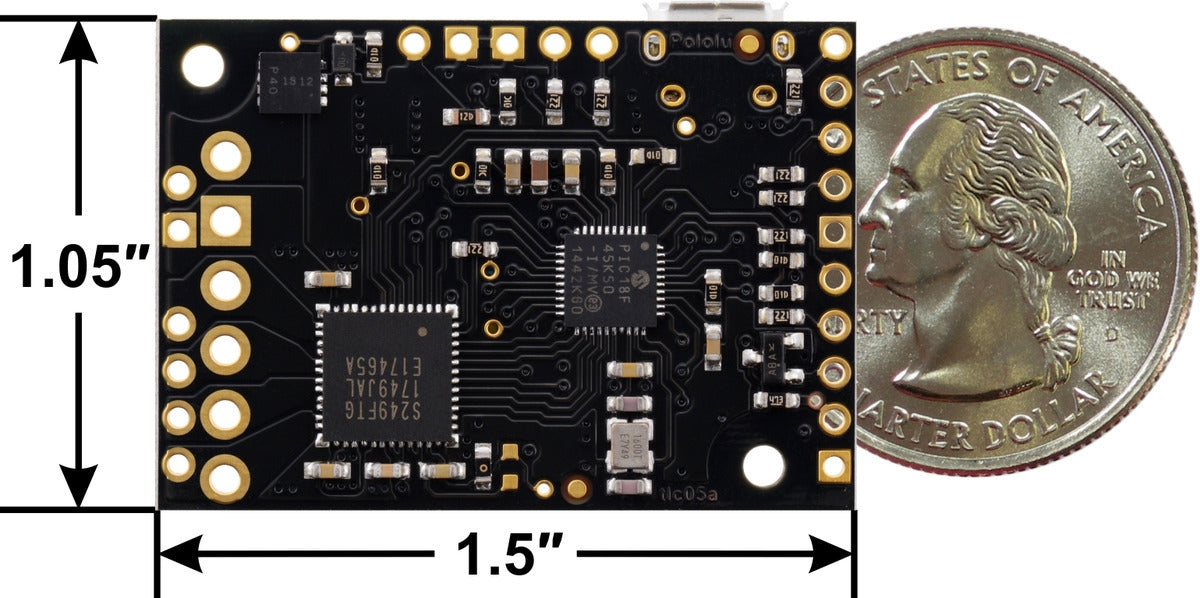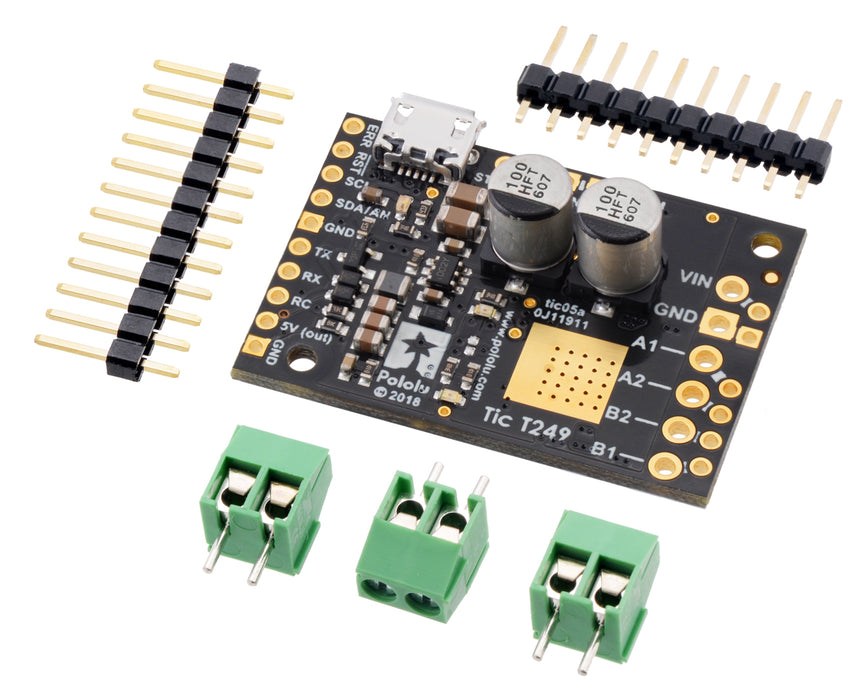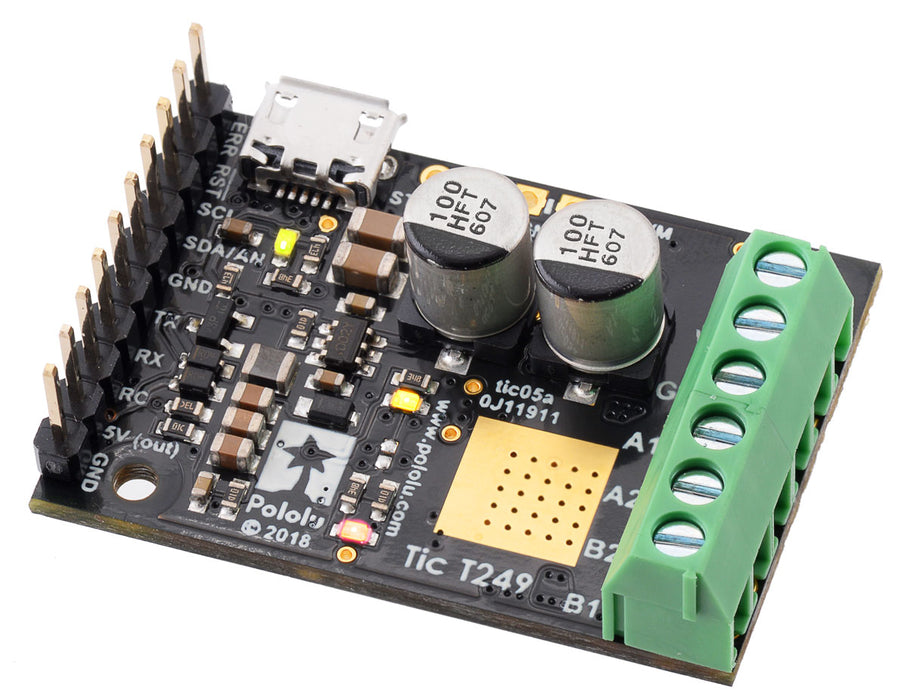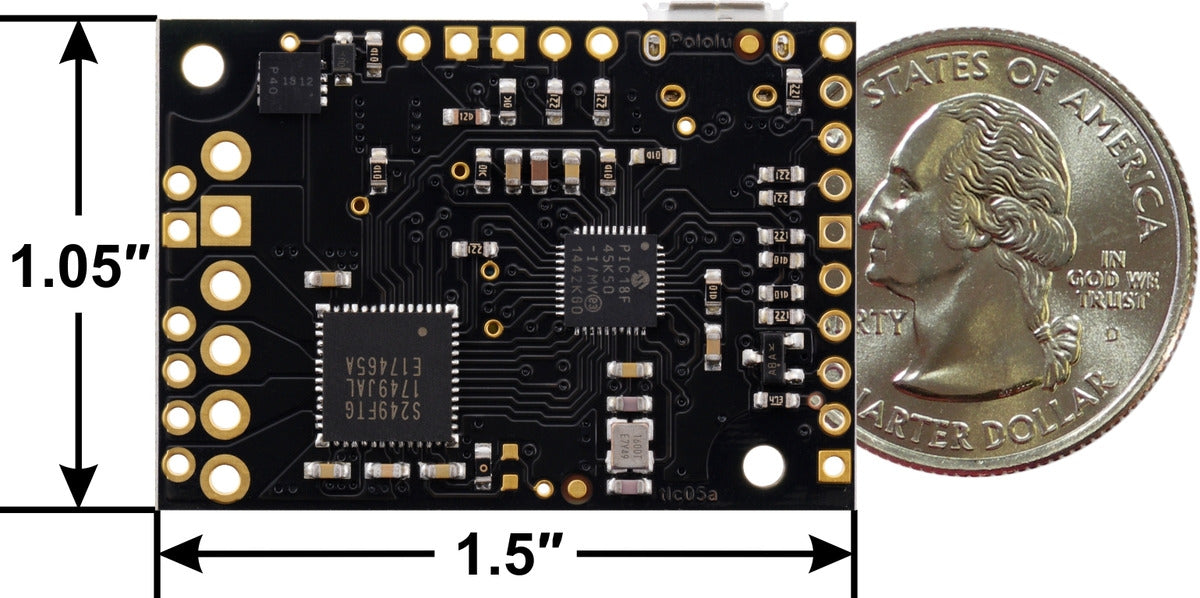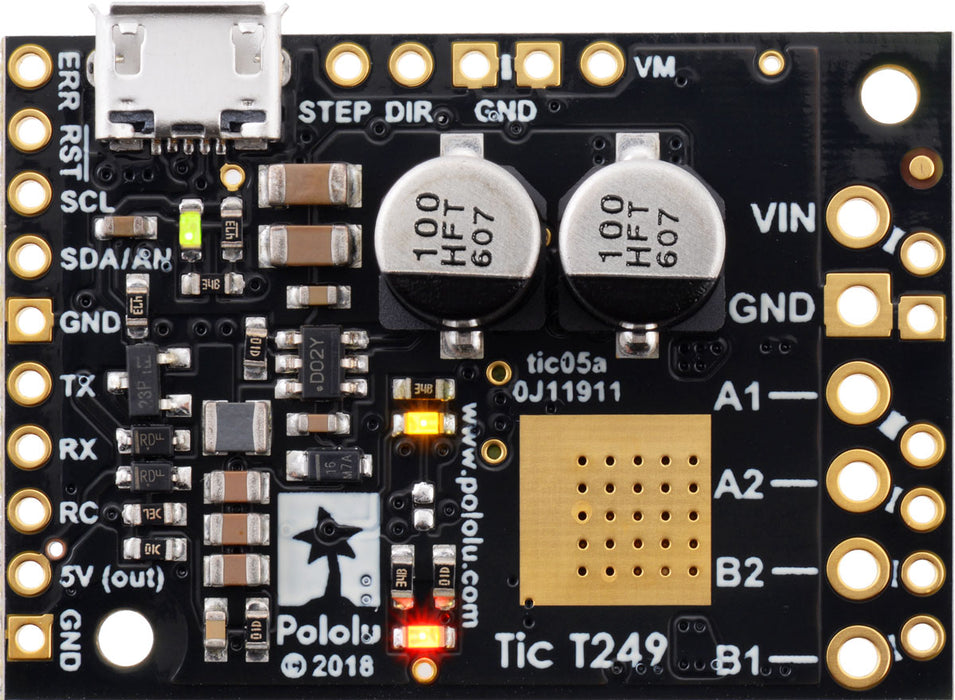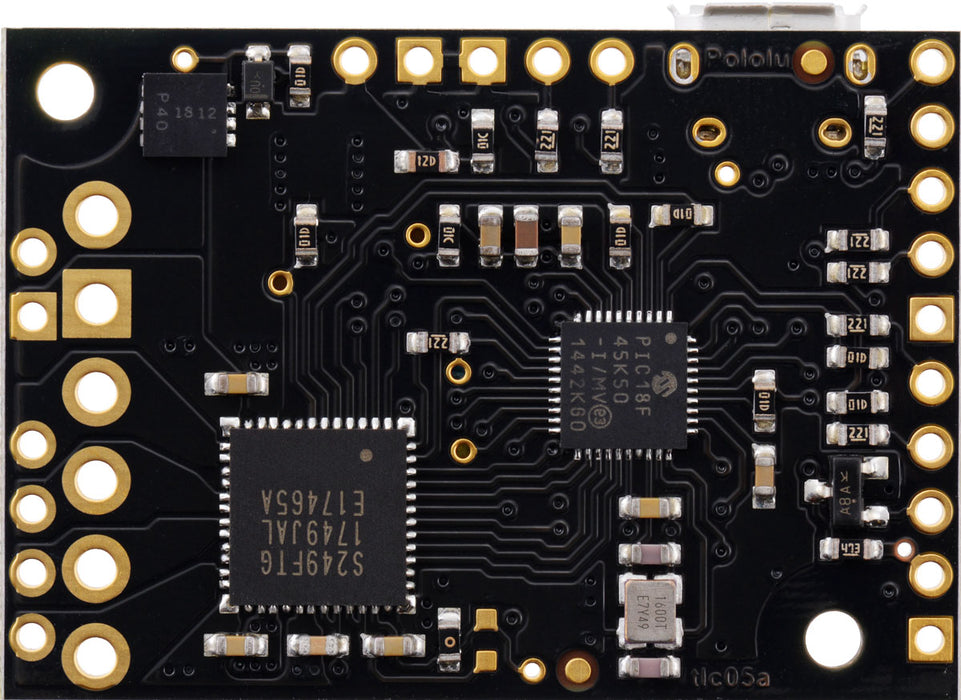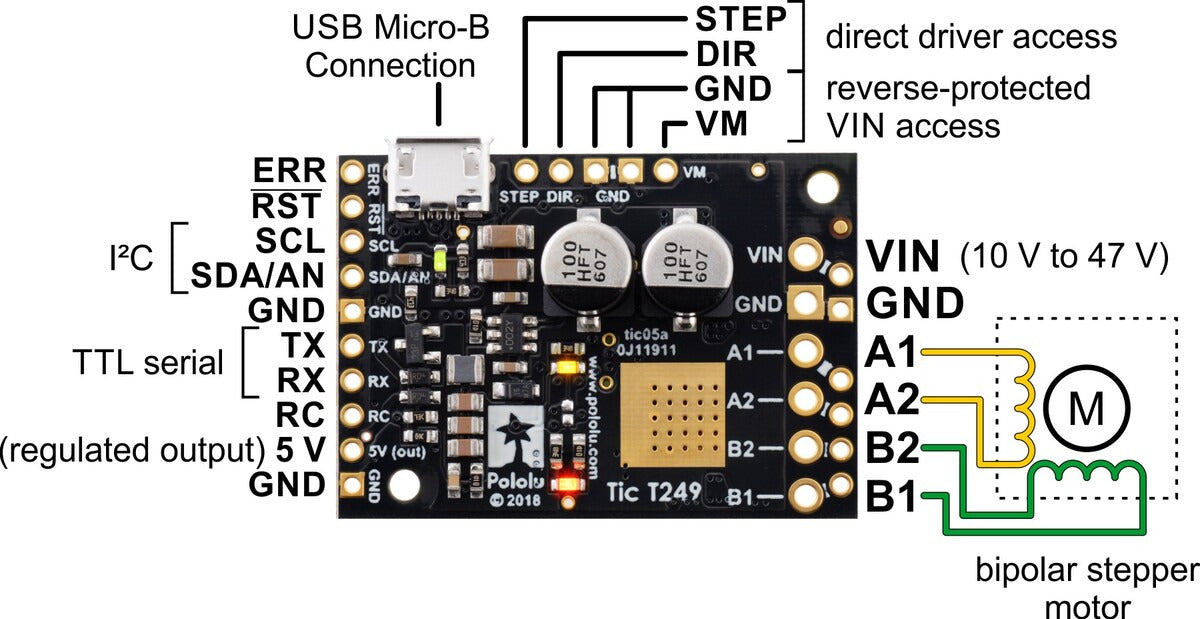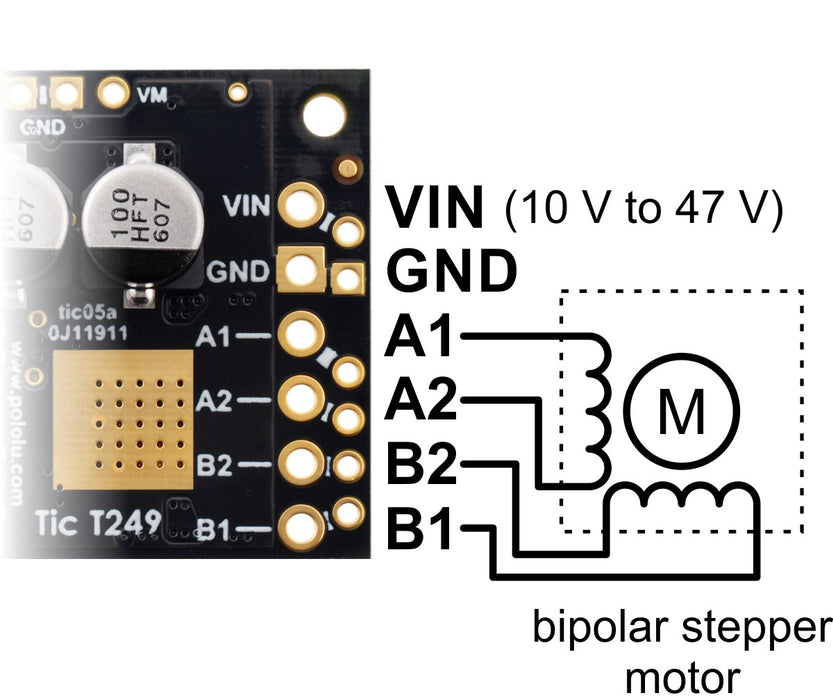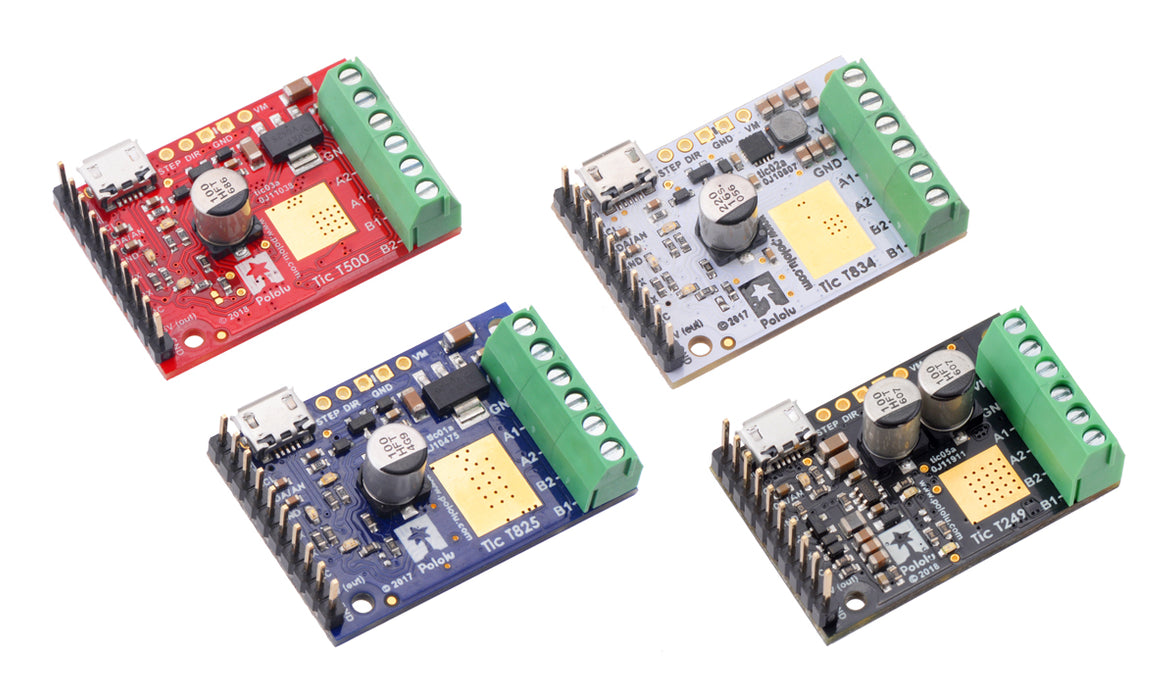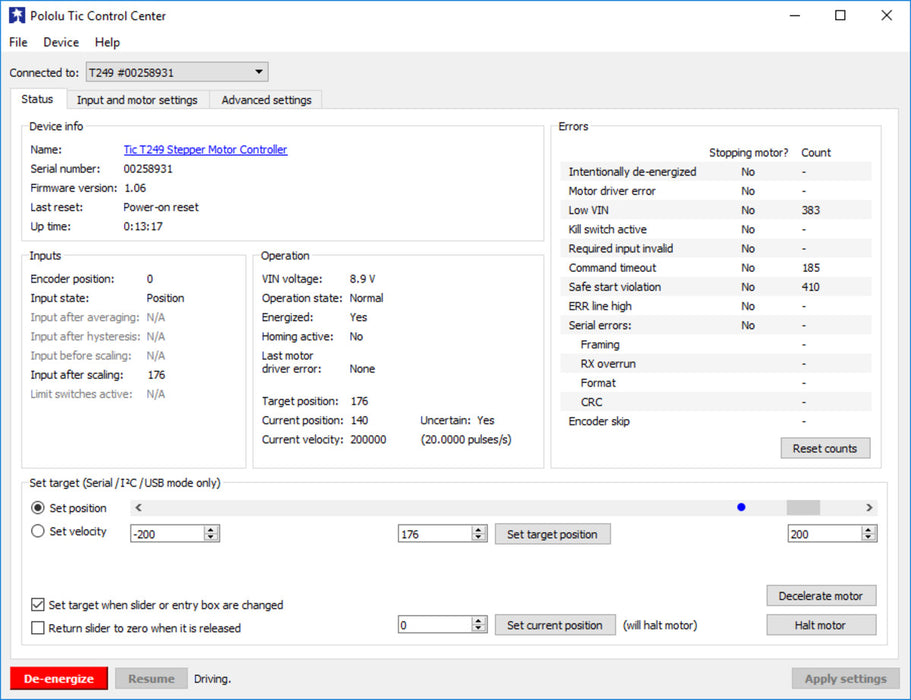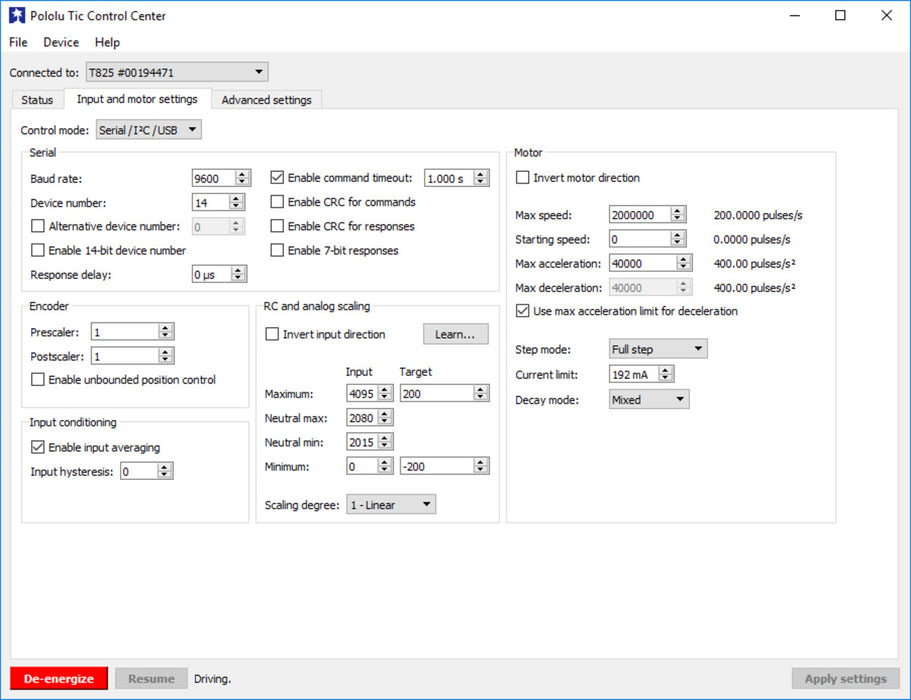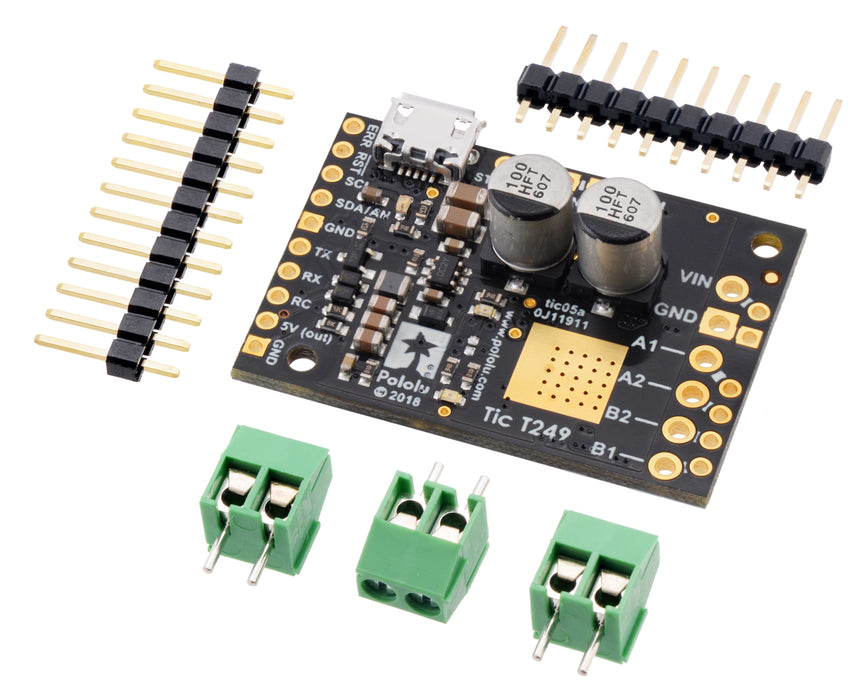
Tic T249 USB Multi-Interface Stepper Motor Controller
All prices are VAT included
The Tic T249 USB Multi-Interface Stepper Motor Controller makes basic control of a stepper motor easy, with quick configuration over USB using our free software. The controller supports six control interfaces: USB, TTL serial, I²C, analog voltage (potentiometer), quadrature encoder, and hobby radio control (RC). This version incorporates a Toshiba TB67S249FTG driver with innovative and unique features that include Automatic Gain Control, and male headers and terminal blocks are included but not soldered . It can operate from 10 V to 47 V and can deliver up to approximately 1.8 A per phase without a heat sink or forced air flow (or 4.5 A max with sufficient additional cooling).
Overview
The Tic family of stepper motor controllers makes it easy to add basic control of a bipolar stepper motor to a variety of projects. These versatile, general-purpose modules support six different control interfaces: USB for direct connection to a computer, TTL serial and I²C for use with a microcontroller, RC hobby servo pulses for use in an RC system, analog voltages for use with a potentiometer or analog joystick, and quadrature encoder for use with a rotary encoder dial. They also offer many settings that can be configured using our free configuration utility (for Windows, Linux, and macOS). This software simplifies initial setup of the device and allows for in-system testing and monitoring of the controller via USB (a micro-B USB cable is required to connect the Tic to a computer).
The table below lists the members of the Tic family and shows the key differences among them.
 Tic T500 |
 Tic T834 |
 Tic T825 |
 Tic T249 |
 Tic 36v4 |
|
|---|---|---|---|---|---|
| Operating voltage range: | 4.5V to 35V (1) | 2.5V to 10.8V | 8.5V to 45V (1) | 10V to 47V (1) | 8V to 50V (1) |
| Max continuous current per phase (no additional cooling): |
1.5 A | 1.5 A | 1.5 A | 1.8 A | 4 A |
| Peak current per phase (additional cooling required): |
2.5A | 2 A | 2.5A | 4.5 A | 6 A |
| Microstep resolutions: | full half 1/4 1/8 |
full half 1/4 1/8 1/16 1/32 |
full half 1/4 1/8 1/16 1/32 |
full half 1/4 1/8 1/16 1/32 |
full half 1/4 1/8 1/16 1/32 1/64 1/128 1/256 |
| Automatic decay selection: |  |
 |
 |
||
| Automatic gain control (AGC): |  |
||||
| Driver IC: | MP6500 | DRV8834 | DRV8825 | TB67S249FTG | discrete MOSFETs |
| Price (connectors not soldered): | $44.95 | $59.95 | $59.95 | $59.95 | $64.95 |
| Price (connectors soldered): | $46.95 | $61.95 | $61.95 | $61.95 | $66.95 |
1 See product pages and user's guide for operating voltage limitations.
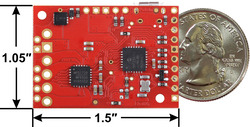
|
Tic T500 USB Multi-Interface Stepper Motor Controller, bottom view with dimensions. |
|---|
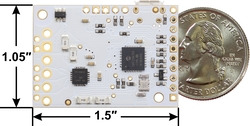
|
Tic T834 USB Multi-Interface Stepper Motor Controller, bottom view with dimensions. |
|---|
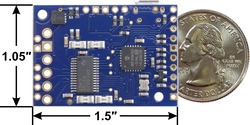
|
Tic T825 USB Multi-Interface Stepper Motor Controller, bottom view with dimensions. |
|---|
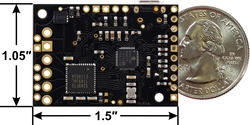
|
| Tic T249 USB Multi-Interface Stepper Motor Controller, bottom view with dimensions. |
|---|
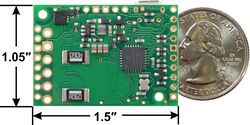
|
Tic 36v4 USB Multi-Interface High-Power Stepper Motor Controller, bottom view with dimensions. |
|---|
Features and specifications
- Open-loop speed or position control of one bipolar stepper motor
- A variety of control interfaces:
- USB for direct connection to a computer
- TTL serial operating at 5 V for use with a microcontroller
- I²C for use with a microcontroller
- RC hobby servo pulses for use in an RC system
- Analog voltage for use with a potentiometer or analog joystick
- Quadrature encoder input for use with a rotary encoder dial, allowing full rotation without limits ( not for position feedback)
- STEP/DIR inputs for compatibility with existing stepper motor control firmware
- Acceleration and deceleration limiting
- Maximum stepper speed: 50,000 steps per second
- Very slow speeds down to 1 step every 200 seconds (or 1 step every 1428 seconds with reduced resolution).
- Selectable microstep modes up to 1/256-step resolution:
- The Tic 36v4 supports full-step to 1/256-step modes
- The Tic T825, Tic T834, and T249 support full-step to 1/32-step modes
- The Tic T500 supports full-step to 1/8-step modes
- Digitally adjustable current limit
- Optional safety controls to avoid unexpectedly powering the motor
- Input calibration (learning) and adjustable scaling degree for analog and RC signals
- 5 V regulator (no external logic voltage supply needed)
- Optional limit switch inputs with homing capabilities
- Optional kill switch inputs
- STEP/DIR outputs for controlling external stepper motor drivers
- Connects to a computer through USB via a USB A to Micro-B cable (not included)
- Free configuration software available for Windows, Linux, and macOS
- Arduino library makes it easy to get started using these controllers with an Arduino or compatible board
- Comprehensive user's guide
Details for item #3139
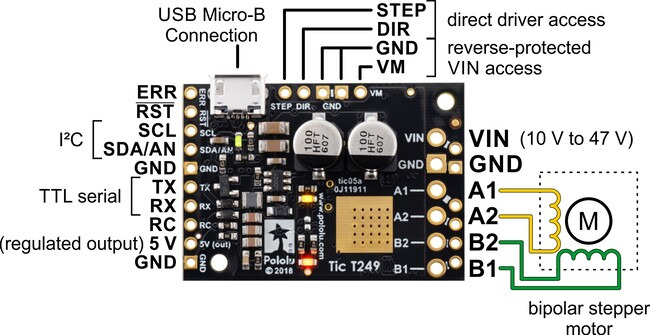
|
The Tic T249 is based on the TB67S249FTG IC from Toshiba, which allows the Tic T249 to offer several unique and innovative features. One of these is Toshiba's Active Gain Control (AGC), which automatically reduces the stepper motor current below the set limit based on the actual load on the motor, allowing for reduced unnecessary heat generation and higher peak power when the motor actually needs it. Another is Toshiba's Advanced Dynamic Mixed Decay (ADMD) technology, which dynamically switches between slow and fast decay modes based on the actual motor current, providing higher efficiency and smoother steps at high speed than you get with traditional timing-based mixed decay.
The Tic T249 can operate from 10 V to 47 V and can deliver up to approximately 1.8 A continuous per phase without a heat sink or forced air flow (the peak current per phase is 4.5 A). This version is sold unassembled so soldering is necessary to use it.
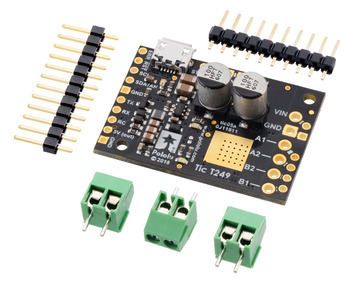 |
Tic T249 USB Multi-Interface Stepper Motor Controller (without connectors soldered) with included headers and terminal blocks. |
|---|
A version is also available that requires no soldering to use as the terminal blocks and main header pins are already installed.

